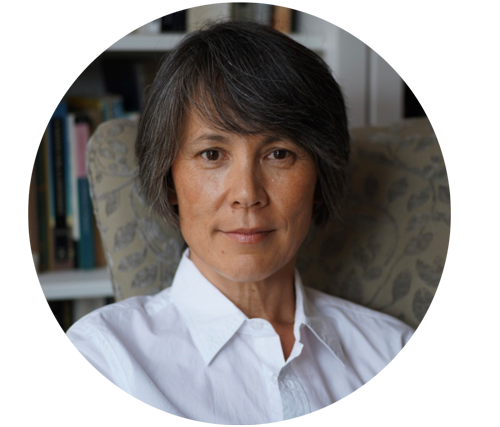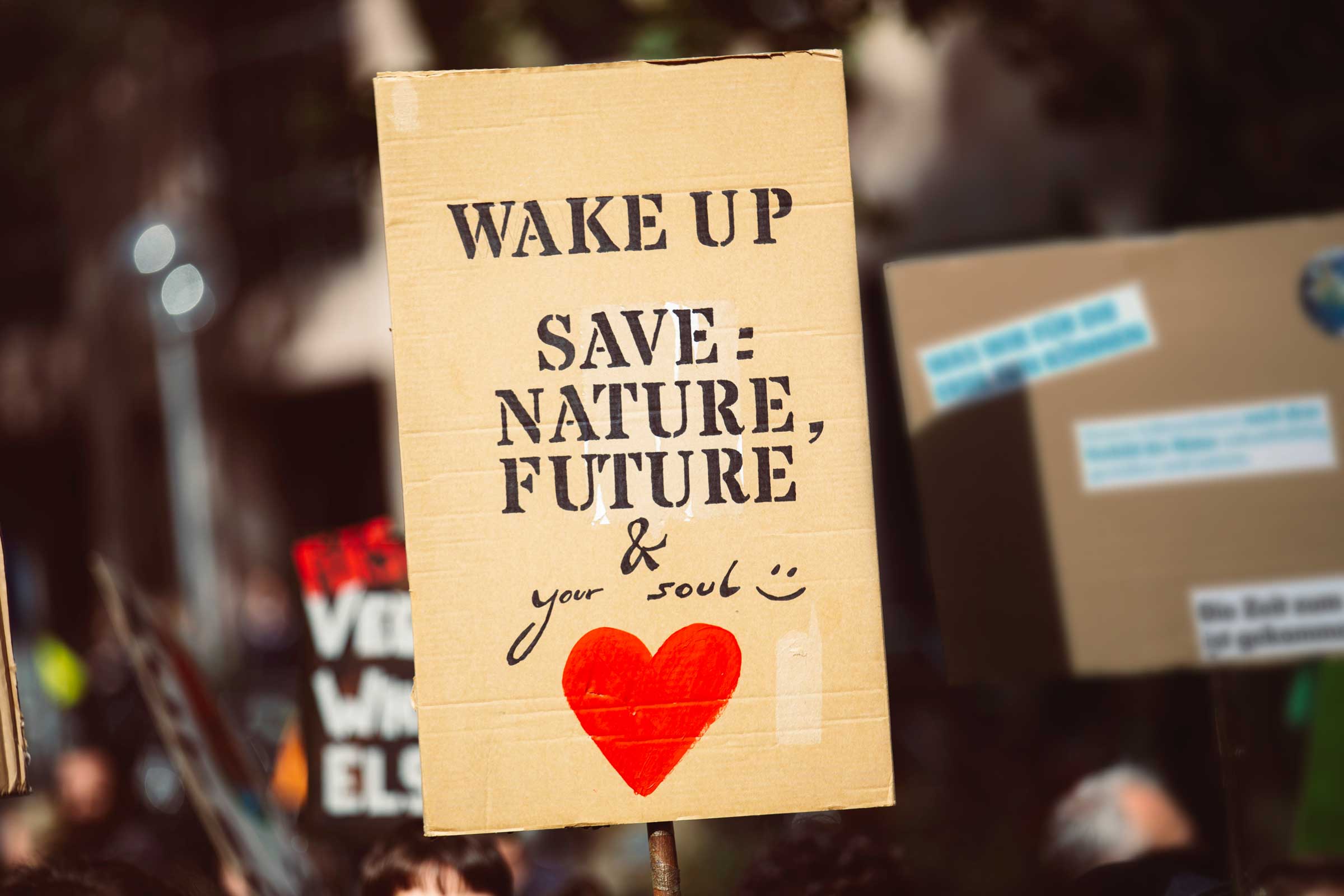
Gabrielle Chan was raised as a city girl, but she’s now very much a country woman. The journalist with more than three decades of experience moved to regional Australia almost 30 years ago. She’s seen both sides of the perennial city versus country political tussle and her recent book Rusted Off: Why Country Australia Is Fed Up explores what ‘ordinary people’ can teach us about the way forward for government.

“Since moving to Harden, NSW, in 1995, I had been struck by the cultural differences between the place I grew up in – a big city – and the place I moved to. After a couple more decades of political coverage and the global disruptions happening around elections voters – like the Brexit outcome and the Trump vote – I thought ‘I really have to write something now’.
“Not only were we seeing these results, we were seeing shouting from both sides over issues that really divided regional Australia from metropolitan Australia. Someone needed to explain each side to each other. That’s what I hope my book will do.”
For as long as people remember, Ms Chan says, we’ve been engaged in a ‘is country better than city’ (or vice versa) debate. That, she explains, doesn’t achieve anything. It perpetuates ‘us and them’ thinking.
“We have these two implacably opposed sides who won’t talk together. As that separation or polarisation continues it locks us down from solving policy issues we see in regional communities. It prevents metropolitan people from solving issues they face because we get into the discussion about who’ll be the winner from policy outcomes – regional or metropolitan Australia.
“We can definitely have policy outcomes that benefit both, but our representatives from both sides have to start talking.”
The business of politics
So, what happens when you feel you’re not being heard? Well, in her latest book, Ms Chan draws a very interesting conclusion.
“The people I interviewed in my town who vote for minor parties, talk about the major parties being like big businesses. They believe they’re in the business of winning parliament and not worrying about the people they’re representing. That appears to be a very common theme, particularly if you talk to people who are deserting major parties in droves.
“The other interesting point is that support for minor parties and independents rises the further you get from a General Post Office. The further you are from the centre of a city, the more likely it is that people will vote for minor parties. I wanted to know why that’s happening.”
The first clue was when it became clear that communities have high expectations of government.
“The bottom line is government can’t do everything for you. In a sense they’re even less likely to be able to fix things now in a very politically disrupted environment; parliament is very log jammed.
“The corollary of that is that communities are already coming up with their own policy solutions to apply in their own local setting. There are many examples of regional and rural communities doing amazing things. They are identifying a problem in their own community, working out what they need to do to fix it, getting the community on side and then implementing the solution. Maybe that solution will need a little government help, but not that much.
“Government’s will still need to lead. If they don’t do their job and provide the framework for communities to solve those problems it makes communities’ jobs harder. It also breaks the contract of trust between communities and elected representatives. And that’s why communities are so frustrated with politics – because that contract with communities and their MP is breaking down.”
Get engaged – improve the system
Ms Chan believes that in this new climate, savvy politicians have to be clear that they’re working for the community first and foremost – not their party.
“If you take your project or problem, coupled with solutions, to your MP and they don’t help, don’t respond or aren’t interested for their ambition’s sake or their party’s sake – people will make a more educated choice when they go to the ballet box. Likewise for the MP who helps, does their job and ticks all the boxes. You can support them at the ballot box.”
The key is for individuals and communities to be more engaged in the process. When they do, Ms Chan explains, the impacts are significant.
“When people are engaged it improves democracy. If there’s an ineffective MP in a very safe seat and a section of the community decides they need to change and there is the support to do it – it will happen. It may just take a couple of terms.”
Just look at the results of the last few elections. The seats of Farrer and Indi.
“We have seen regional seats sitting on very large margins where the MP has been challenged on a pretty short campaign. Ex-independent candidate Kevin Mack presented a strong challenge to Farrer’s Susan Ley and built up a 20 per cent primary vote – in a four month campaign. In a key seat that covers Albury through to the South Australian border.
“So it’s happening. And it’s happening because of unpredictable and local issues. In Farrer it was largely about water.
“The Cathy McGowan experiment in the seat of Indi in North-east Victoria really shows what engagement can do on the ground. In that case, the Liberal party expected the seat to come back to the fold after independent Cathy McGowan retired. But, for the first time ever it was handed from independent to independent. That’s a result of very local issues. People are switching on to the idea that marginal seats are getting a lot of attention.”
So, what are the issues for voters in regional Australia?
There will be few surprises when it comes to the hot topics identified by Ms Chan. Most are longstanding issues governments continue to grapple with.
- Education. The difference in education opportunities for kids in country seats compared to those for kids in city seats. Plus, the hollowing out of institutes like TAFE is a big issue. There’s a feeling that there’s not enough diversity in education. And there’s a perceived bias for university over technical trades.
- Health services. Not just access to doctors, but also speciality services and allied health professionals. There’s a big difference in the ratio of health professionals to population numbers in country seats to city seats.
- Connectivity. Individuals and businesses in regional Australia need access to mobile phone reception and broadband. With more and more of our lives involving the internet, proper access is almost becoming a human rights issue.
Sharing is caring in regional Australia
Here’s a few of the innovative ideas born from regional initiative.
Hay Inc – technical education
The Hay community recognised a lack of education for youth who wanted to work on farms. So, they banded together and set up a program. They take local kids and provide them with a high standard of education in agriculture – in the local community. It’s a two-way street. Kids get educated and farm businesses get skilled, top-notch labour.
Luv-a-Duck – refugee settlement
Struggling to staff a growing business, former Luv-a-Duck general manager John Millington helped refugees from Myanmar resettle in the town of Nhill in 2009. It soon benefitted from the backing of a very supportive community. A decade on, it’s estimated the initiative has contributed $40 million to the local economy.
Royal Far West – health
RFW is a longstanding charity that brings country children to the city, providing them with much-needed health services. But they are now heading in a new direction. The organisation is bring their resources, including specialists, speech pathologists, and occupational therapists, and services into country towns. They are filling the gap, knowing they can’t bring every child with a health issue to the city.
Connecting with our city cousins
While there are many positives from regional Australians stepping up to address the issues they face, there is still much to be gained from closing the divide between city and country. In her book Rusted off – Why Country Australia is Fed Up, Ms Chan highlights the increasing homogenous nature of the world. Despite the perceived differences between those living in the country and cities, there is a lot of common ground. What we need to do, she believes, is to ramp up the understanding between the groups. Only then can we work together to solve problems.
“If we begin with increasing the human connections I think we’ll also go a long way to finding policy solutions.”
“We have to acknowledge the cultural dissonance between the two places. An acknowledgement of the reality that almost half of Australians were born overseas or have a parent who was born overseas. The result? Many don’t have a connection to regional Australia. It’s like a different country altogether. But to understand someone you have to walk a mile in their shoes.
“No matter where in the world you are, we’re seeing the same stuff, doing similar things, we have the same aspirations. Whether I’m in Harden, Paris or Afghanistan, I can watch the same television shows on the internet. And yet, if you go to a city school they talk about exchanges with places like Paris. Why not send a city kid to Harden to try and increase the connections and celebrate our local culture?”
Creating a world worth living in
What does a better world look like to you? Does it mean finding a cure for illnesses, improving education, making new discoveries, leading a movement or developing innovative technologies? Or is it about having an impact in regional Australia and making a difference?
Our wide range of courses will give you the skills and industry knowledge so you can be the change you want to see in the world. Follow your heart, get qualified and land a job you’ll love with Charles Sturt University. Let’s get to work!


You must be logged in to post a comment.